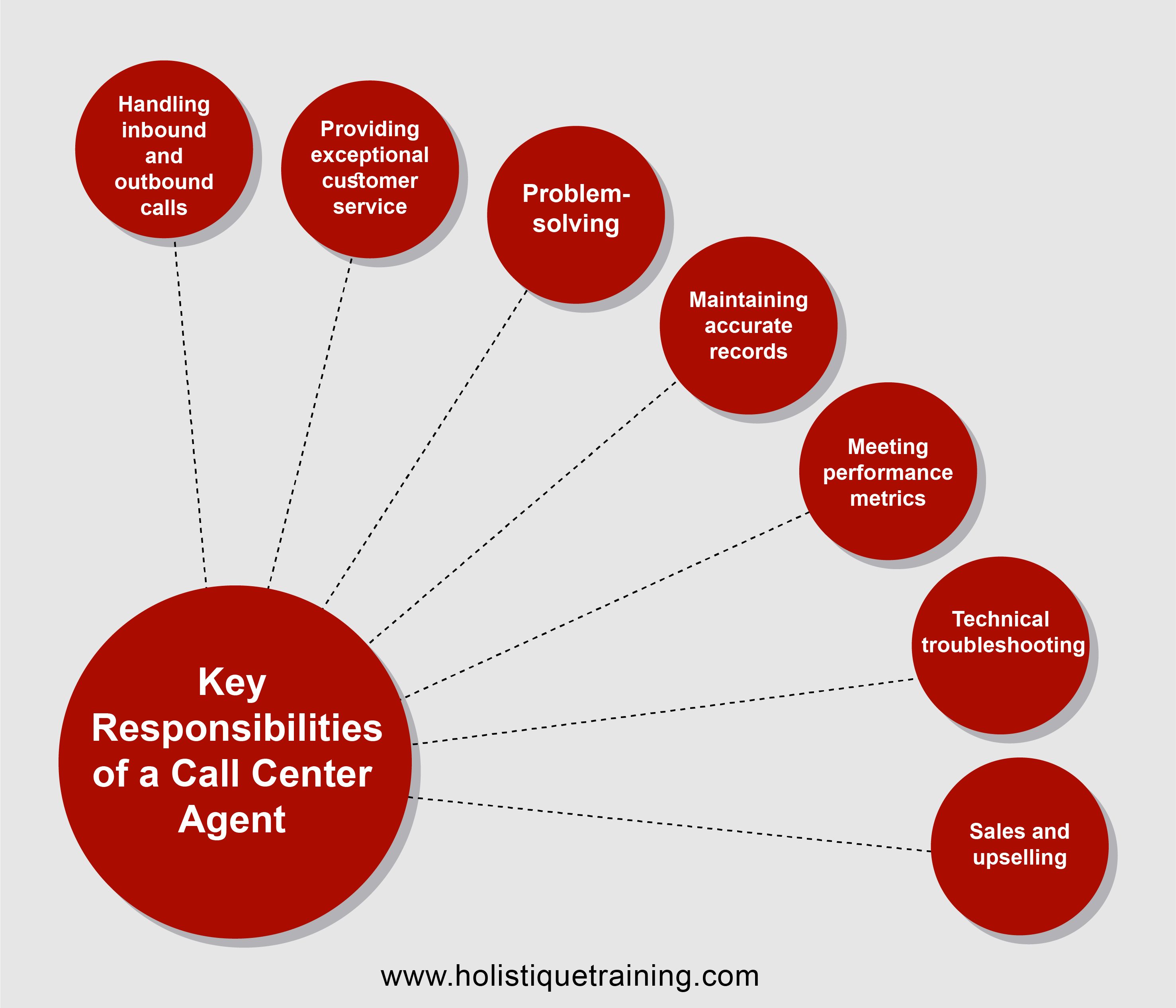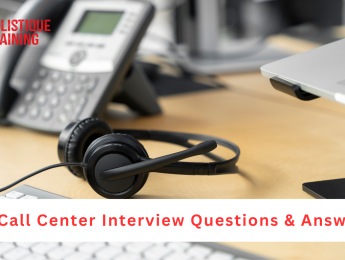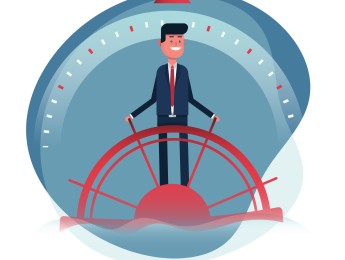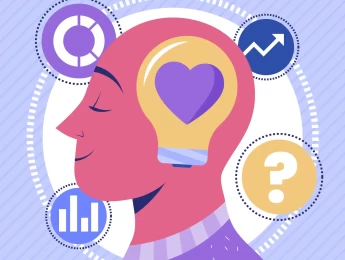- Table of Contents
- Introduction
- Key Responsibilities of a Call Center Agent
- Want to pursue a career in a call center?
- 1. What do you know about the role of a call center agent?
- 2. Why do you want to work in a call center instead of other customer service roles?
- 3. How do you handle an angry customer who is yelling at you?
- 4. Can you describe a time when you had to handle a high volume of calls?
- 5. What strategies do you use to maintain high customer satisfaction ratings?
- 6. What would you do if you didn’t know the answer to a customer’s question?
- 7. How would you handle a customer who insists on speaking to a supervisor?
- 8. How do you make scripted responses sound natural?
- 9. How do you handle multitasking, such as talking to a customer while updating their records?
- 10. Have you ever faced a technical issue while assisting a customer? How did you handle it?
- 11. What do you do to stay motivated in a repetitive job like a call center?
- 12. Are you familiar with CRM systems?
- 13. How do you handle a customer who refuses to follow instructions?
- 14. What do you know about our company, and why do you want to work here?
- Conclusion
Introduction
Call centers play a vital role in strengthening a company's communication with its customers by providing support and resolving issues over the phone. While often linked to customer service, there is a clear distinction between the two. Call centers focus specifically on handling phone interactions, whereas customer service covers multiple channels, including email, live chat, and in-person support.
To succeed in a call center role, it is essential to understand the key tasks and responsibilities that come with the position. In this article, we will first highlight these key responsibilities to give you a clear idea of what the job entails. Then, we will share the top 14 common call center interview questions and answers to help you prepare effectively and increase your chances of success.
Key Responsibilities of a Call Center Agent

A call center agent’s primary duties include:
Handling Inbound and Outbound Calls
Professionally managing both incoming and outgoing customer calls, ensuring a polite and welcoming tone at all times. This includes answering inquiries, resolving complaints, processing service requests, conducting follow-up calls, and reaching out proactively when needed to provide information or gather feedback.
Providing Exceptional Customer Service
Striving to exceed customer expectations by actively listening, showing empathy, and addressing their concerns efficiently and respectfully. Building rapport and maintaining a positive customer experience to foster loyalty and trust in the brand.
Problem-Solving
Demonstrating critical thinking and resourcefulness to quickly assess customer issues, determine root causes, and provide clear, effective solutions tailored to the customer’s needs. Remaining calm and solution-focused, even in challenging or escalated situations.
Maintaining Accurate Records
Thoroughly documenting all customer interactions, including details of inquiries, complaints, actions taken, and resolutions provided. Ensuring records are updated in the customer relationship management (CRM) system for future reference and analysis, contributing to service quality and operational transparency.
Meeting Performance Metrics
Consistently achieving and aiming to surpass key performance indicators (KPIs) such as average response and resolution times, first-call resolution rates, and customer satisfaction scores. Taking responsibility for contributing to team and organizational goals.
Technical Troubleshooting
Guiding customers step-by-step through the resolution of technical problems related to products, software, or services. Using clear language to explain complex technical concepts and escalating unresolved issues to appropriate technical teams when necessary.
Sales and Upselling (if Required)
Identifying opportunities to introduce customers to additional products or services that meet their needs. Effectively communicating benefits and value propositions, while ensuring that any upselling remains customer-focused and ethical.
Want to pursue a career in a call center?
Here are 14 call center interview questions and answers to help you prepare.
1. What do you know about the role of a call center agent?
Suggested Answer:
“A call center agent is responsible for handling customer interactions via phone, email, or chat, addressing their inquiries, resolving issues, and ensuring a positive customer experience.”
Tip:
Demonstrate a clear understanding of the role by mentioning key skills such as active listening, problem-solving, and handling high-pressure situations. Highlight that a call center agent is not just answering calls but also building brand trust through exceptional service.
2. Why do you want to work in a call center instead of other customer service roles?
Suggested Answer:
“I enjoy fast-paced environments that allow me to interact with diverse customers and solve problems efficiently. Call centers also offer structured career growth and skill development opportunities.”
Tip:
Show enthusiasm for continuous learning and career advancement. Companies prefer candidates who see this role as a long-term career path rather than a temporary job.
3. How do you handle an angry customer who is yelling at you?
Suggested Answer:
“I remain calm, actively listen to the customer’s concerns without interrupting, acknowledge their frustration, and assure them that I’m here to help. I then work towards providing a suitable solution.”
Tip:
Patience and emotional intelligence are key in handling difficult customers. According to a 2023 Harvard Business Review study, customers are more likely to stay loyal to a brand if they feel heard and respected, even after an initial complaint.
4. Can you describe a time when you had to handle a high volume of calls?
Suggested Answer:
“In my previous role, I managed a surge in calls by prioritizing urgent issues, streamlining responses, and keeping my focus on resolving each inquiry efficiently.”
Tip:
Show that you can work under pressure without compromising on quality. Employers value agents who can maintain composure and productivity during peak hours.
5. What strategies do you use to maintain high customer satisfaction ratings?
Suggested Answer:
“I focus on active listening, empathy, and clear communication I ensure customers feel valued and always follow up when necessary.”
Tip:
A Forbes report from 2022 states that companies with higher customer satisfaction rates generate 4-8% more revenue than competitors. Mentioning this can demonstrate your awareness of how customer experience directly impacts business success.
6. What would you do if you didn’t know the answer to a customer’s question?
Suggested Answer:
“I would acknowledge that I don’t have the answer immediately, but I would reassure the customer that I will find the correct information and get back to them promptly.”
Tip:
Honesty and resourcefulness are valued more than guessing an incorrect answer. Show that you would take responsibility while using available resources.
7. How would you handle a customer who insists on speaking to a supervisor?
Suggested Answer:
“I would first try to understand their concern and resolve it myself. If they still insist, I would escalate the issue to a supervisor while ensuring a smooth transition.”
Tip:
Companies prefer employees who can de-escalate situations without immediately involving a supervisor. Show that you can take ownership of customer issues.
8. How do you make scripted responses sound natural?
Suggested Answer:
“I familiarize myself with the script but personalize my tone and pacing to match the customer’s emotions, making the conversation more engaging and authentic.”
Tip:
Sounding robotic can harm customer satisfaction. Employers value agents who can balance professionalism with a human touch.
9. How do you handle multitasking, such as talking to a customer while updating their records?
Suggested Answer:
“I use active listening to absorb key details while efficiently entering data into the system. I also confirm information with the customer to ensure accuracy.”
Tip:
Call centers require strong multitasking skills. Mention how you maintain accuracy and attentiveness while handling multiple tasks.
10. Have you ever faced a technical issue while assisting a customer? How did you handle it?
Suggested Answer:
“Yes, during a call, our system went down. I calmly informed the customer, apologized for the delay, and provided alternative assistance while troubleshooting.”
Tip:
Technical issues are common in call centers. Employers look for candidates who can stay calm under pressure and provide solutions rather than excuses.
11. What do you do to stay motivated in a repetitive job like a call center?
Suggested Answer:
“I set daily performance goals, focus on positive interactions, and remind myself that I’m helping customers solve real problems.”
Tip:
Hiring managers want to see that you can stay engaged and resilient, even in a high-volume environment.
12. Are you familiar with CRM systems?
Suggested Answer:
“Yes, I have experience using CRM software to log customer interactions, track issues, and personalize responses for better customer engagement.”
Tip:
CRM (Customer Relationship Management) systems enhance efficiency and improve customer relationships. Companies using advanced CRM solutions lead the way in technological leadership for the digital era, ensuring smooth operations and high customer retention.
13. How do you handle a customer who refuses to follow instructions?
Suggested Answer:
“I remain patient, rephrase my instructions in simpler terms, and offer alternative solutions to guide them towards resolving their issue.”
Tip:
Employers want to see adaptability and a problem-solving mindset when dealing with difficult customers.
14. What do you know about our company, and why do you want to work here?
Suggested Answer:
“I admire [Company Name] for its commitment to excellent customer service. Your training programs and growth opportunities align with my career goals, and I’m excited about contributing to your team.”
Tip:
Research the company extensively before the interview. Mention specific achievements, values, or initiatives that resonate with you.
Conclusion
Preparing for a call center interview goes beyond practicing answers. It requires understanding the role, mastering key responsibilities, and developing strong communication skills. By reviewing these common interview questions and answers, you are taking an important step toward interview success.
To further enhance your skills and stand out as a top candidate, consider enrolling in our specialized courses designed to equip you with the knowledge and confidence needed for a career in customer service. If you have any questions or need personalized guidance, feel free to contact us.
























